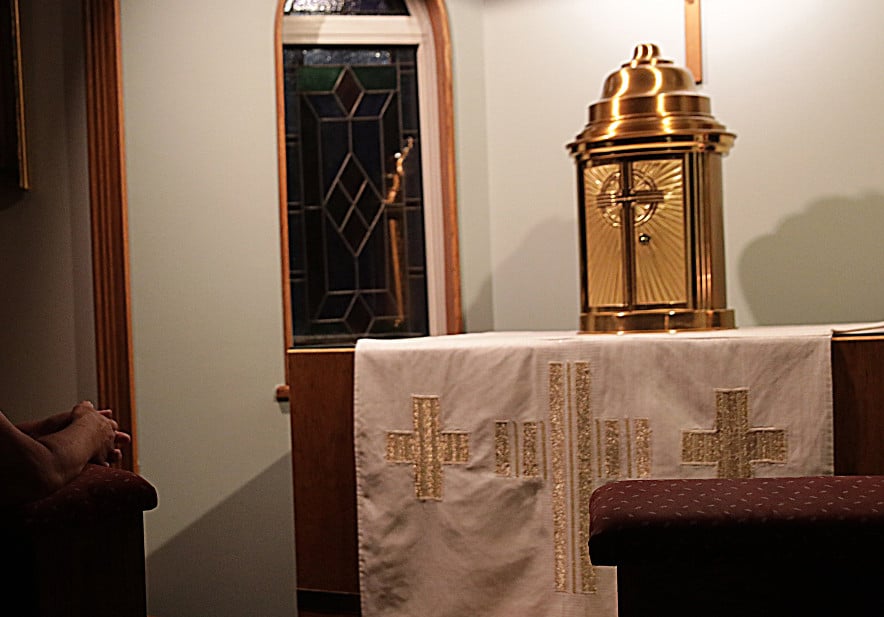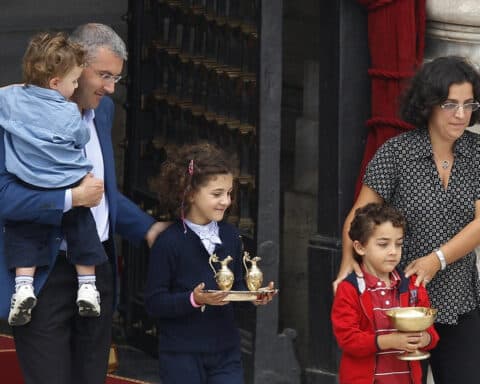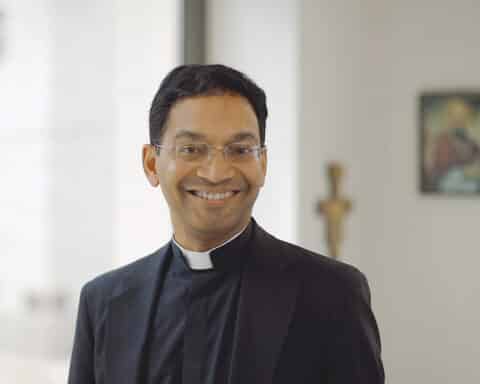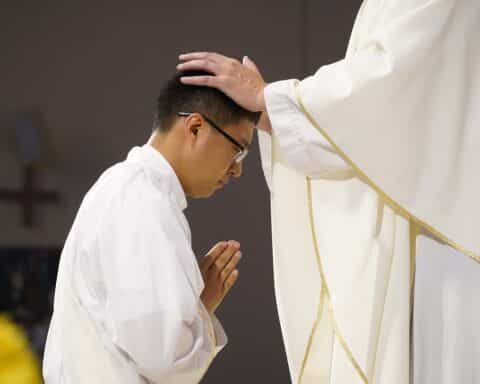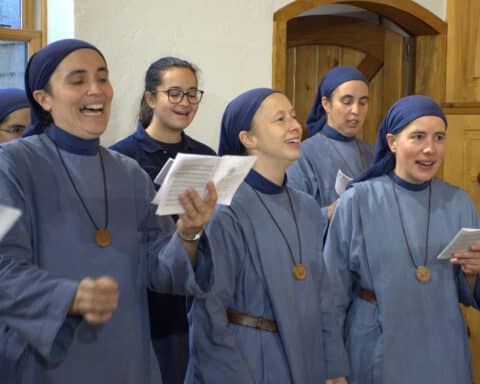“Love … is an ever-fixed mark that looks on tempests and is never shaken.”
— Shakespeare, Sonnet 116
It was 2010, I was not yet 30 years old, and I had just been promoted to vice president — a huge achievement. I had spent most of the day tearful — not the happy kind, which had me rattled and confused. At this point in my life, I was in the throes of discerning religious life, and part of that included being inspired one day while sitting before the Blessed Sacrament to include the help of a counselor in the journey of discernment. Recent topics of conversation with my counselor had included forgiveness.
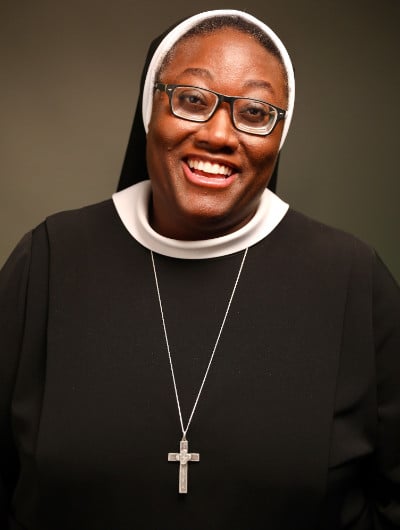
The vocations director with whom I was regularly meeting challenged me — I was adopted at the age of 8 by my aunt and uncle after my father’s suicide and mother’s struggle to care for us — to find my birth mother (who I knew was not too hard to find) and extend forgiveness to her. I found the suggestion to be ridiculous and had been processing it and discussing it with my counselor for a few weeks. Why on earth would I extend forgiveness to a woman who didn’t ask for my forgiveness?
It was a Wednesday, I was running around for work, and we were celebrating a birthday at the weekly Catholic study group I attended, so balloons were floating around in my car as I drove through torrential rain, while crying, for no apparent reason. What did I have to cry about? I was a vice president! I needed to stop. My car almost drove itself off the exit ramp to the adoration chapel that I frequented. I knelt before the Blessed Sacrament and began to pour my heart out, my mind full of words for the Lord, my journal full of more, talking and talking and talking, the Lord waiting for a word, waiting for me to remember that he is the Word. The challenge to forgive my birth mother had not even been on my mind that day, but somehow my ramblings arrived there, and the words in my mind and in my journal only increased. And then, in prayer, I finally said to the Lord in the Blessed Sacrament, “Fine. OK. Say it: Have I been unforgiving — not just to my mother, but to my father as well?”
Then the stillness came. I finally stopped with the noise in my mind and in my journal, and I perceived just one simple question from Jesus in the Blessed Sacrament that was loving and also utterly convicting at the same time: Why don’t you pray for them? There, in an adoration chapel, with just a simple inquiry, the Lord revealed my own heart to me (a heart locked up with unforgiveness that left me without even prayers to say for my own parents) and brought me another step along on the path of conversion.
This is who Jesus in the Eucharist has been for me; an ever-fixed mark in a world full of words and activity, with busyness and complexities. … Before Jesus in the Blessed Sacrament, there is simplicity, clarity, stillness and quiet — the opportunity to see and know God, in truth.
This is who Jesus in the Eucharist has been for me; an ever-fixed mark in a world full of words and activity, with busyness and complexities. An ever-fixed mark for my own heart full of even more words, activity, busyness and complexity. Before Jesus in the Blessed Sacrament, there is simplicity, clarity, stillness and quiet — the opportunity to see and know God, in truth. The opportunity to rest and abide in transformative love. It was before Jesus in the Blessed Sacrament that I heard the first whisperings of a call to religious life; it was before Jesus in the Blessed Sacrament that I agreed to follow Jesus down a path that was unknown to me. The only reason I could agree was because he had made himself known to me, so I knew on a journey full of unknowns that he would never change; he would remain fixed and constant. It was before Jesus in the Blessed Sacrament that I came to understand Christ as King, to understand his reign of love, the constancy of it and the presence of his reign in the most ordinary moments of life. It has been before Jesus in the Blessed Sacrament that I have come to understand that Jesus is really present among us, God’s definitive Word; he is the last say in all things.
Read more Fall Vocation articles here.
I recently gave a talk to some teens, and it didn’t go well. I just struggled to land the plane in the time allotted to me to do so. I retreated to the adoration chapel afterward to remain with Jesus until it was time for him to be brought out for adoration with the teens. I followed back out to the retreat area as they went to place the Blessed Sacrament in the monstrance, and I saw about 150 teenagers encircled around the altar with a monstrance in the middle. I knelt and joined them all in prayer, and I was reminded yet again, like he has reminded me so many times in our Eucharistic relationship: He is the ever-fixed mark we gather around — not our circumstances, not the pastor, not the bishop, not the various personalities or ministries in the Church.
In the end, we, over and over again, gather and adore an ever-fixed mark of God’s love for us: the Eucharist.
Sister Josephine Garrett is a member of the Sisters of the Holy Family of Nazareth. She writes from Texas.

